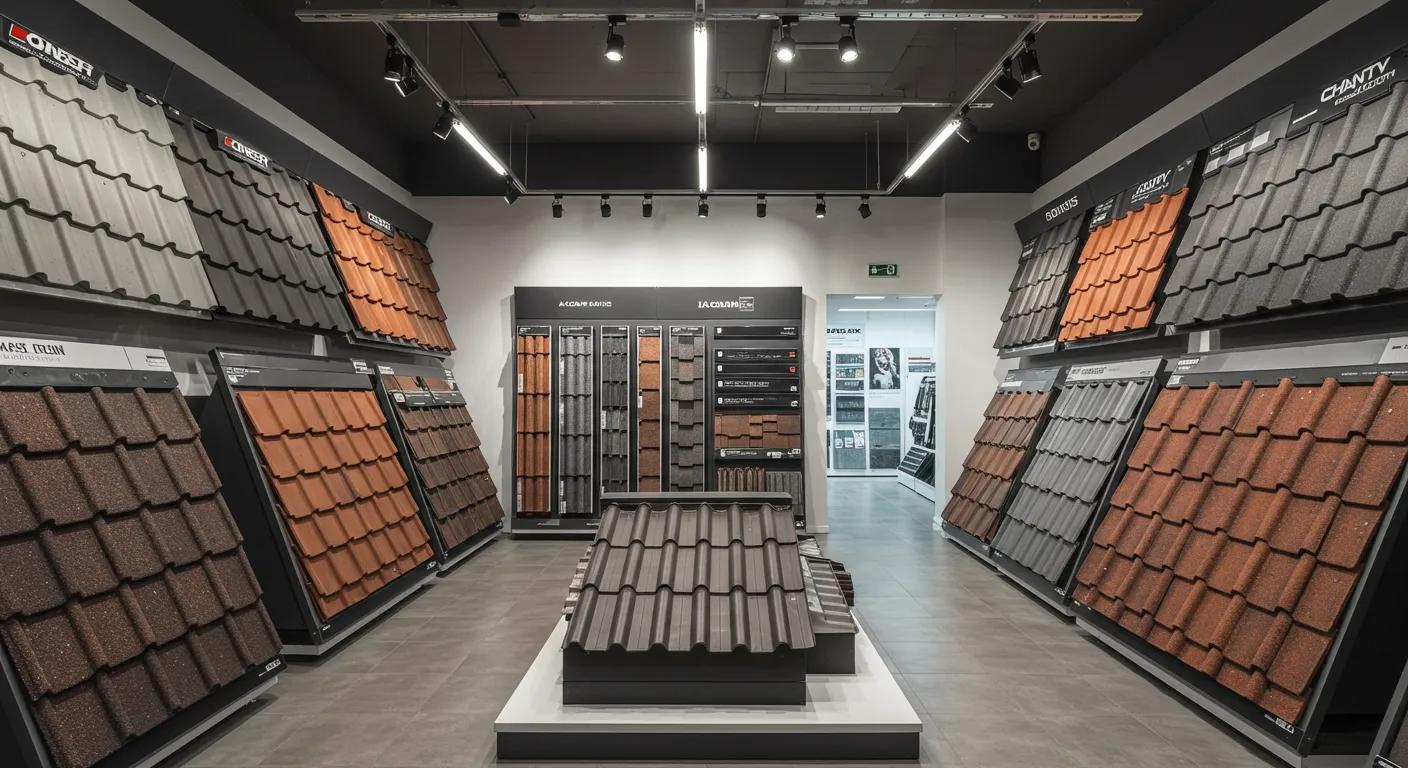Roofing Companies Near Me: What to Look For
In today’s competitive market, selecting a reputable roofing company is essential for protecting your home or business from water damage and structural problems. Homeowners, business owners, and property managers need to find local roofers with proven experience, skills, and certifications, such as timberman roofing. This article provides concise insights into finding reliable roofing companies nearby, covering expected services, materials, pricing, and evaluation criteria for contractor expertise.
Key Takeaways
- Roofing companies must have proper licensing, insurance, and good customer testimonials.
- Comprehensive services include installation, repairs, emergency maintenance, and tailored solutions for homes and businesses.
- Understanding materials, cost factors, and warranty options is crucial.
- Evaluating local experience and compliance with building codes helps ensure quality.
- Proven project portfolios and local expertise are strong indicators of reliable service.
How Do I Find Reliable Roofing Companies Near Me?
Start your search by checking online directories, local review sites, and word-of-mouth recommendations. Reliable roofers display clear licensing, insurance, and certifications, and have long-standing community ties. Use local building supply companies and industry referrals to generate a shortlist. Request references and information on similar projects to verify that the contractor has handled work such as leak repairs, water damage prevention, or full installations with transparent pricing.
What Are the Key Qualities of a Reputable Roofing Company?
A reputable roofer combines technical expertise with excellent customer service. They maintain proper licensing, insurance, and frequently update their certifications. Their commitment is reflected in clear estimates, transparent contracts, and a portfolio of successful projects. Positive reviews and word-of-mouth endorsements underline their ability to manage both routine maintenance and emergency repairs while adhering to local safety codes.
How Can I Verify Licensing, Insurance, and Certifications?
Always request copies of current licenses and insurance certificates, including general liability and worker’s compensation. Verify these documents by contacting local regulatory authorities or using state online services. Additionally, ask for client references to confirm that the contractor complies with industry standards and operates legally, ensuring reliable protection in case of work-related issues.
Why Is Local Experience Important for Roofing Contractors?
Local contractors understand regional weather challenges, building codes, and common roofing problems such as leaks and water damage. Their familiarity with local suppliers and permit processes streamlines project management. Choosing a roofer who works extensively in your area means you benefit from tailored recommendations on materials and techniques that optimize your roof’s performance and longevity.
What Roofing Services Should I Expect From Local Roofing Companies?
Roofing companies typically offer a complete range of services from new installations to emergency repairs. Expect detailed consultations, accurate measurements, and transparent estimates covering labor and materials. Regular services often include gutter cleaning, leak detection, and preventive treatments, while specialized services may involve waterproofing and energy-efficient insulation solutions suitable for both residential and commercial properties.
What Is Included in Roof Installation, Repair, and Replacement Services?
For new installations, contractors perform a thorough site inspection, remove old roofing if required, and install underlayment and insulation with precise measurements. In repairs, they target issues such as damaged shingles or leaks with quality materials, and replacements involve full removal and reinstallation to meet current building codes. Documentation, warranties, and post-service inspections are standard to ensure durability and compliance.
How Do Emergency Roofing and Maintenance Services Work?
Emergency services activate quickly during severe weather or sudden leaks to minimize further damage. Contractors perform temporary fixes and schedule complete repairs promptly. For routine maintenance, regular inspections, cleaning, and minor repairs help extend roof life and maintain safety standards. Many providers offer service contracts to schedule inspections and offer discounted rates, ultimately reducing long-term costs.
What Are the Differences Between Residential and Commercial Roofing Services?
Residential roofing projects tend to be smaller, focused on aesthetic integration and protection using materials like asphalt shingles or wood shakes. In contrast, commercial roofing deals with flat or low-slope roofs using specialized materials such as modified bitumen or built-up roofing systems. Commercial work often requires adherence to stricter building codes and periodic inspections due to larger surface areas and heavier usage.
Which Roofing Materials Do Local Roofing Companies Offer?

Roofing companies provide a variety of materials to suit different budgets, climates, and design needs. Common options include asphalt shingles, metal roofing, clay or concrete tiles, wood shakes, and synthetic products. Each material offers distinct benefits in terms of durability, energy efficiency, and weather resistance. Roofing professionals guide homeowners in choosing the best option based on local climate, cost, and maintenance requirements.
What Are the Pros and Cons of Asphalt Shingles, Metal, Tile, and Wood Shakes?
1. Asphalt Shingles – Affordable and easy to install with various color options; however, they tend to have a shorter lifespan. 2. Metal Roof – Durable and energy-efficient, with excellent resistance to extreme weather, but have a higher initial cost and may produce more noise during rain. 3. Tile Roof – Offers a unique aesthetic, great longevity, and fire resistance; heavier material that might need extra support. 4. Wood Shakes – Provide a natural look and good insulation but require more maintenance and are susceptible to fire and rot.
How Do I Choose the Best Roofing Material for My Climate?
Consider your local weather patterns, including temperature extremes and precipitation. In hot climates, metal roofs are popular for their energy efficiency, whereas areas with heavy rain or snow benefit from waterproof and durable materials like tile or asphalt shingles. Discuss your options with local contractors who have the expertise needed to match the material’s performance to your specific environment.
What Are the Leading Roofing Brands Used by Trusted Contractors?
Trusted roofing contractors often use reputable brands such as CertainTeed, GAF, Owens Corning, and Tamko. These brands are recognized for quality, durability, and comprehensive warranties. Contractors choosing these products signal a commitment to high standards, and homeowners should ask about the brands used to ensure they receive reliable materials backed by solid performance guarantees.
How Much Do Roofing Companies Near Me Charge? What Affects Roofing Costs?
Roofing costs vary based on material type, project complexity, roof size, and pitch. Detailed estimates provided after an on-site inspection help reflect your project’s unique requirements. It is important to collect multiple quotes to understand pricing variations, which can be influenced by additional factors like accessibility and structural needs.
What Are Typical Costs for Roof Installation, Repair, and Replacement?
New installations include labor, materials, and disposal fees calculated per square foot, while repairs for damage or leaks can range from hundreds to thousands of dollars. Full replacements are more costly due to complete removal processes and reinstallation that meets up-to-date building codes. Clear estimates help avoid unexpected charges.
How Do Roof Size, Materials, and Complexity Influence Pricing?
Larger roofs require more materials and labor, and the cost differences between asphalt, metal, tile, or wood depend on installation demands. Steep or complex designs necessitate extra work such as additional flashing or custom fittings, which increase costs. A professional assessment ensures all factors are considered.
Are There Financing or Warranty Options Available?
Many companies offer financing options with flexible terms, and warranties covering both materials and workmanship are common. These warranties typically range from 5–10 years for labor and up to 50 years for materials, providing additional peace of mind against future issues.
How Can I Evaluate and Compare Roofing Companies Near Me?

Comparing roofing companies involves gathering multiple quotes, reading customer reviews, and examining project portfolios. Ask for personal references and case studies to validate local experience and expertise. Evaluate proposals based on pricing, material quality, warranty offerings, and adherence to local building codes.
What Questions Should I Ask Roofing Contractors Before Hiring?
Key questions include inquiries about licensing, insurance, years in business, recent local projects, and warranty details. Ask how they handle unexpected issues and cleanup. Detailed cost breakdowns and timelines are essential for comparing offers and ensuring a transparent process.
How Important Are Customer Reviews and Testimonials?
Reviews provide real-world insights into a contractor’s reliability, responsiveness, and quality of work. Look for detailed feedback, especially from clients in your region, as this highlights the company’s ability to deliver on local projects. Testimonials from trusted directories can help confirm a roofer’s credibility.
What Role Do Local Building Codes and Permits Play in Choosing a Roofer?
Compliance with local building codes and proper permits is non-negotiable. A contractor familiar with local regulations minimizes legal risks and project delays. Always verify that the chosen company follows these requirements to ensure your roofing work meets all safety and quality standards.
What Are Common Roofing Warranties and Guarantees Offered by Local Roofers?
Roof warranties generally fall into two categories: material and workmanship. Material warranties protect against defects for many years, while workmanship warranties typically cover installation issues for 5–10 years. These warranties are critical for long-term performance and provide a remedy if defects arise.
What Is the Difference Between Material and Workmanship Warranties?
Material warranties cover the roofing products themselves, while workmanship warranties guarantee proper installation. Together, they offer comprehensive protection by ensuring both the materials and the installation meet quality standards.
How Long Do Typical Roofing Warranties Last?
High-quality materials can carry warranties from 20 to 50 years, whereas workmanship warranties generally last between 5 and 10 years. Always request written documentation detailing the duration and conditions of the warranties.
How Can I Claim Warranty Services if Needed?
To claim warranty services, notify the contractor in writing as soon as a defect is noticed. Provide necessary documentation such as contracts, certificates, and photographs. Following scheduled maintenance guidelines is crucial to keep the warranty valid.
Where Can I Find Roofing Companies Near Me With Proven Local Expertise?
Local expertise is verified by reviewing directories, customer testimonials, and project portfolios. Contractors with extensive local experience understand regional weather, building codes, and supplier networks, providing tailored and compliant roofing solutions.
How Do Local Weather Conditions Affect Roofing Needs?
Regional weather impacts material selection and installation methods. In areas with heavy rain or snow, durable, waterproof materials are best, whereas milder climates may support a wider range of options. Local contractors consider these factors to recommend optimal solutions.
What Are the Benefits of Choosing a Roofing Company Familiar With Local Building Codes?
Familiarity with local codes ensures smooth permitting and inspection processes, reducing delays and legal risks. A contractor’s local knowledge guarantees that the project complies with all regulations while matching community architectural standards.
How Can I Access Customer Testimonials and Project Portfolios in My Area?
Visit company websites, review local directories, and check social media for before-and-after project images and customer feedback. References and in-person project visits can further confirm the quality and reliability of the contractor’s work.
Frequently Asked Questions
Q: How do I verify a roofing company’s licensing and insurance?
A: Request copies of their licenses and insurance certificates and verify them with local authorities or state boards.
Q: Should I choose a contractor with local experience over one from outside my area?
A: Yes, local contractors better understand regional weather, building codes, and have established reputations.
Q: What factors primarily affect the cost of roof repairs?
A: Roof size, material choice, project complexity, and current labor rates are the main factors.
Q: How important are warranties when selecting a roofing company?
A: Warranties are essential for protecting against material defects and workmanship issues.
Q: Can I get financing for new roof installations?
A: Many companies offer financing options with flexible terms to help manage upfront costs.
Final Thoughts
Local roofing companies with proven expertise, transparent pricing, and comprehensive warranties ensure quality installation and repair services. By verifying licensing, insurance, and customer feedback, you can confidently choose a contractor who meets regulatory standards and your specific needs. Emphasizing local knowledge and understanding regional weather patterns helps secure a durable, compliant roof that adds lasting value and safety to your property.

